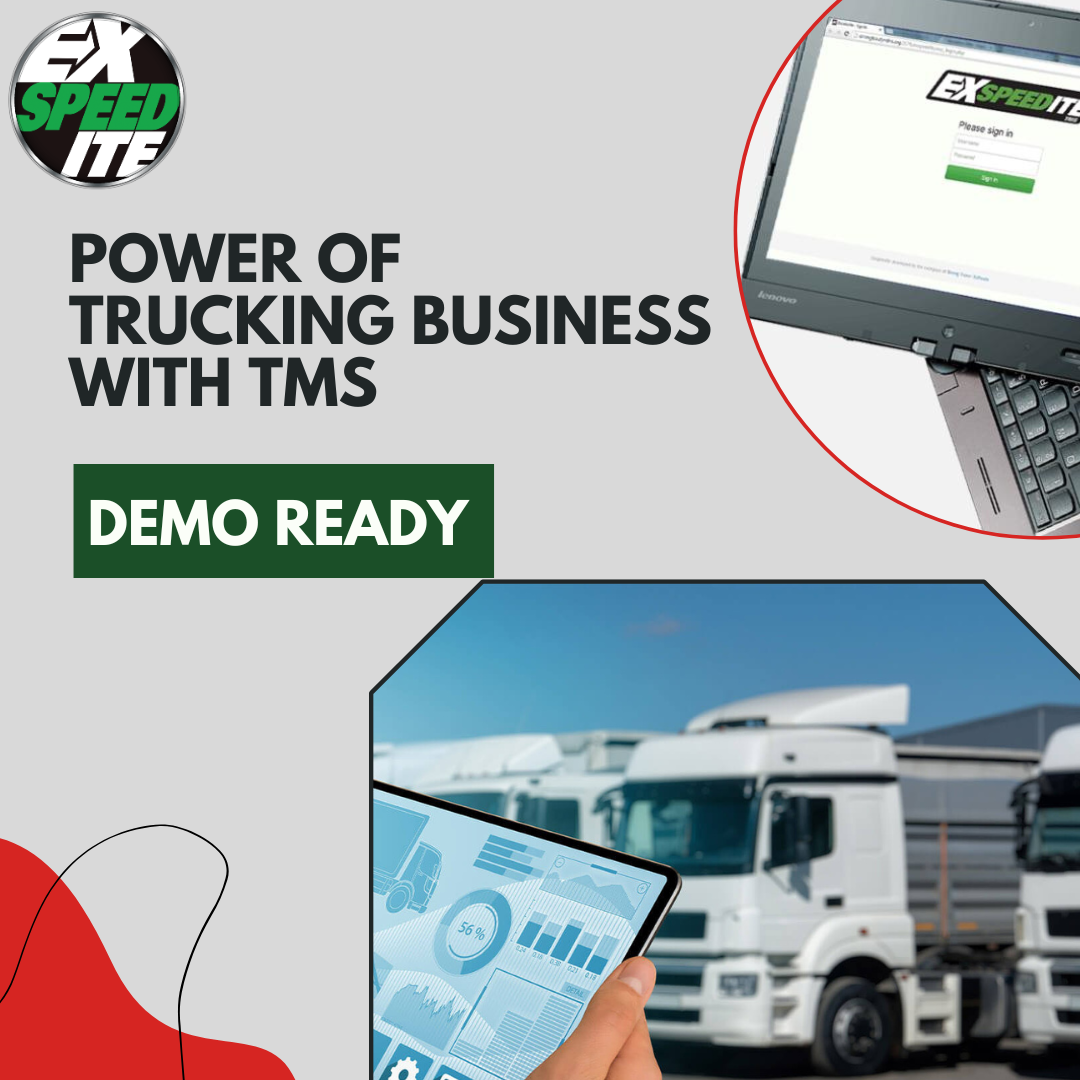Power Of Trucking Business With TMS in 2024
Supply Chain Management Systems: Supply Chain Management Systems are comprehensive solutions that orchestrate and optimize the entire supply chain process. From procurement and production to distribution and logistics, these systems provide real-time visibility and control over the flow of goods and information. They facilitate collaboration among suppliers, manufacturers, and distributors, improving efficiency, reducing costs, and enhancing overall supply chain performance.
Enterprise Resource Planning (ERP) Solutions: Enterprise Resource Planning solutions serve as centralized platforms that integrate core business processes. These systems span across various departments, including finance, human resources, and inventory management. ERP solutions enable seamless data flow and collaboration, allowing organizations to streamline operations, make informed decisions, and achieve greater efficiency in resource utilization.
Warehouse Management Systems: Warehouse Management Systems focus on optimizing warehouse operations and inventory management. These systems provide tools for efficient order fulfillment, inventory tracking, and warehouse layout optimization. By automating key processes and providing real-time visibility into stock levels, WMS enhances accuracy, reduces lead times, and improves overall warehouse efficiency.
Accounting Software: Accounting software is essential for managing financial transactions and records within an organization. These systems automate processes such as invoicing, expense tracking, and financial reporting. Integration with other business systems ensures accurate and up-to-date financial data, enabling organizations to maintain compliance, make informed financial decisions, and enhance overall financial management.
Business Intelligence Tools: Business Intelligence tools leverage data analytics to extract actionable insights from large datasets. These tools enable organizations to analyze trends, monitor key performance indicators, and make data-driven decisions. By transforming raw data into meaningful information, Business Intelligence tools contribute to strategic planning, performance optimization, and overall business competitiveness.
Logistics Service Provider Marketplace: Logistics Service Provider Marketplaces serve as platforms connecting shippers with a network of logistics service providers. These marketplaces facilitate efficient collaboration, allowing businesses to find reliable partners for transportation, warehousing, and other logistics services. This fosters flexibility, scalability, and cost-effectiveness in supply chain operations.
Freight Marketplace: Freight Marketplaces provide digital platforms where shippers and carriers can connect to arrange transportation services. These platforms often utilize technology to match available capacity with shipping demand, optimizing routes and reducing empty miles. Freight marketplaces enhance transparency, reduce costs, and improve efficiency in the freight industry.
Order Management Platform: Order Management Platforms are systems designed to centralize and streamline the order processing workflow. From order creation to fulfillment and delivery, these platforms automate and optimize the entire order lifecycle. They often integrate with various systems, including inventory management and e-commerce platforms, ensuring accurate and timely order fulfillment while enhancing customer satisfaction.
Key Features of Transportation Management Software System:
- Planning Features:
- Route optimization for efficient travel.
- Load management tools for cargo optimization.
- Demand forecasting to enhance operational planning.
- Execution Features:
- Real-time tracking of vehicles and shipments.
- Dynamic route adjustments based on real-time data.
- Load balancing for optimized transportation.
- Administrative Capabilities:
- Automated billing and invoicing processes.
- Compliance management tools for regulatory adherence.
- Fleet maintenance scheduling to reduce downtime.
- Order Management:
-
-
- Streamlines the processing of orders for efficient execution.
- Facilitates order entry, modification, and status tracking.
-
- Tendering:
-
-
- Manages the process of tendering and bid management.
- Enables the submission and evaluation of transportation bids.
-
- Shipment Rate Management:
-
-
- Handles the pricing and rate negotiation for shipments.
- Ensures accurate and competitive rates for transportation services.
-
- Load Planning:
-
-
- Optimizes cargo load distribution for maximum efficiency.
- Balances loads to comply with weight regulations and minimize costs.
-
- Fleet Management:
-
-
- Monitors and manages the entire fleet of vehicles.
- Tracks vehicle maintenance schedules and performance.
-
- Dock Scheduling:
-
-
- Coordinates the scheduling of loading and unloading at docks.
- Ensures efficient use of resources and reduces wait times.
-
- Document Management and Settlement:
-
-
- Manages transportation-related documents for accuracy and compliance.
- Facilitates settlement processes for accurate and timely payments.
-
- Connectivity Portals:
-
-
- Provides portals for seamless communication with stakeholders.
- Enhances collaboration between shippers, carriers, and other partners.
-
- Route Analysis:
-
-
- Utilizes data analysis to optimize transportation routes.
- Considers factors such as traffic, distance, and delivery windows.
-
- Tracking:
-
-
- Enables real-time tracking of shipments and vehicles.
- Enhances visibility and transparency in the supply chain.
-
- Business Intelligence:
-
- Utilizes data analytics for actionable insights.
- Supports informed decision-making and strategic planning.
A comprehensive Transportation Management Software (TMS) development should incorporate these key features, ensuring a well-rounded solution that optimizes planning, execution, and administrative processes in the transportation industry.

